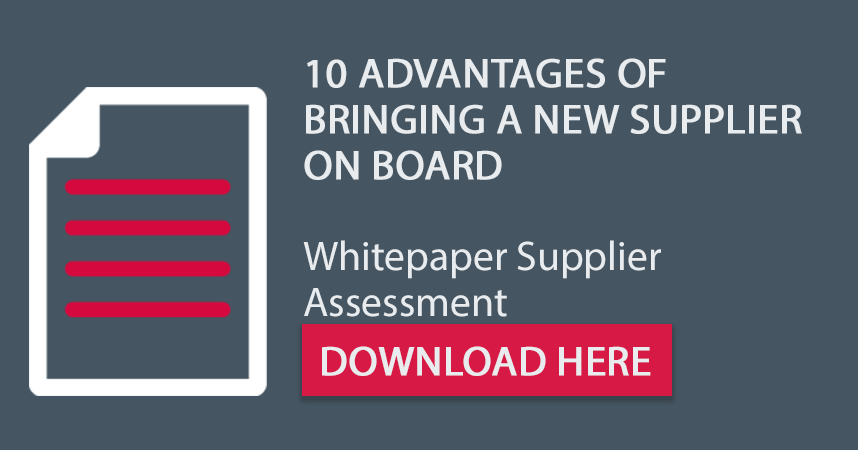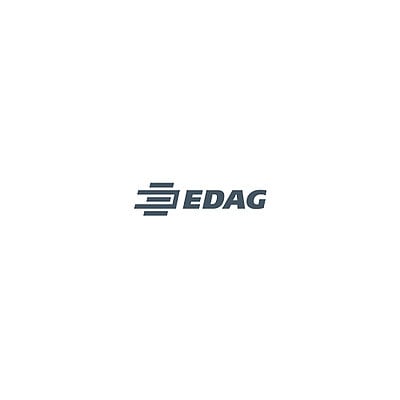"So test therefore who join forever, if heart to heart be found together. Delusion is short, remorse is long." Admittedly, this quote from Friedrich Schiller may be a little outdated, but the message it contains still hits the nail on the head. Often, partnerships have evolved over time, and have more or less worked for years. Established supplier relationships, for example, are often a decisive factor in a company's success. But even if a connection of this type has existed for a long time, this does not necessarily mean that it always free of errors.
Digital transformation means that worldwide, every industrial sector is in a phase of rapid transition. Tried and tested strategies and concepts need to be reassessed, and attention focussed on the customer more clearly than ever before. If we are to keep pace with all these changes and challenges, processes and value chains need to be automated. Ultimately, anyone who fails to react and go digital will never manage to join in this dynamic market growth. And that applies not just to you, but also to your suppliers and sub-suppliers. Maybe you have already noticed that your supplier seems to be stretched to the limit? No longer meets requirements, and that more and more mistakes and problems are finding their way into your "relationship"? Perhaps there are even things that you hate?
We can think of 10 things that you might hate:
-
Locations.
The supplier is not close enough to you. He is based at just one or two locations, and if needed, cannot get to the customer's site fast enough. There is no trace whatsoever of international orientation or global partnerships, which means there is no possibility of cooperating with large global companies, as these will expect your supplier to have development offices or production facilities close to their production sites abroad. Your supplier simply does not have this kind of strong network. -
Competence.
Not yet having implemented similar projects, your supplier does not have adequate extensive expert knowledge and experience on which to draw. Is he unable to solve problems or obstacles that occur by himself, and regularly requires your support? In addition, the same errors seem to recur again and again. He probably simply lacks the technical know-how to work on a flexible and solution-oriented basis. Also, he might not use state of the art manufacturing methods and processes, nor be willing or able to upgrade his qualifications to as to be better prepared for the future. -
Range of services.
Is your supplier's service portfolio so limited that you often need to find new partners to enable you to handle projects as effectively as possible and solve any problems that arise? In the long run, this service provider will not be able to meet all requirements because he is not a full-service provider.
He is very specialised, and has no access to an in-house network consisting of other departments so as to be able to offer you additional services within the project. -
Innovations.
You would welcome more inspiration from your supplier. To survive in the market, you have to be innovative. Advanced developments of materials, products or production processes are therefore essential for companies, if they are to be equipped for the technological challenges of the next few years. But unfortunately it is always you who is the driver when it comes to new ideas and innovative solutions? -
Communication.
There is no effective communication between you. You receive important information too late. Responsibilities are not clearly defined, for instance who is responsible for what, who informs you of delivery bottlenecks, technical problems or possible additional costs. This results in repeated misunderstandings that have a negative impact on your collaboration. There is no communication tool or system to deal with communications concerning all project-related processes, it is even possible that Excel tables are still used. How often do you hear the sentence "Oh no ... if only I had known ..."? What is more, things that have gone wrong or badly are not proactively addressed, but kept quiet. -
Project management.
Is project coordination another weak point in your collaboration? Handling large-scale projects calls for a high degree of competence in project management and project coordination. Processes must be precisely planned so that quality standards can be maintained, and errors or optimisation potential detected at an early stage. But the best planning is of no worth at all if all the project managers are not involved right from the start. Organisational questions must be taken into account and clarified. Responsibilities need to be allocated, work packages defined, and project documents created. Here, too, automation of the processes is both helpful and important. - Reliability.
You would like to feel that you and your supplier are partners on an equal footing, contributing to your mutual success. But again and again, you have realised that, unfortunately, you simply cannot rely on him. He makes no contribution whatsoever to optimisation, and is also lacking in flexibility. Target dates and deadlines are not adhered to. Perhaps it also turns out that you have been promised something that the supplier, having neither the capacity nor the know-how, is unable to deliver. This could be the development of a product, an increase in production, or certain delivery dates. -
Certification.
Necessary types of certification are missing. A long-term cooperation should be one that is at least regulated in accordance with ISO 9001. It serves to ensure quality. But there are many other types of certification and accreditation that your supplier should have if, for example, he wants to work for an OEM. These are often extremely expensive, and smaller suppliers are unable to afford them.
-
Documentation.
Before you even start production, there is a mountain of information, specifications and, of course, contracts that form the basis of the cooperation. There are binding laws, guidelines and standards that apply to project documentation. These also ensure that quality and product standards are met. But unfortunately, at the end of a project, you do not receive all product-relevant reports, certificates, protocols or test reports from your supplier, and have to do battle to get them? Then on top of that, the documents fail to meet your standards, and always need to be corrected and revised? -
Added value.
There are skills and attitudes that it ought to be possible to take for granted in a professional collaboration, but which are not necessarily a matter of course to everyone. However, they bring significant added value to any business partnership, and make it easier to work together. Unfortunately, flexibility, commitment and the ability to work under pressure are just some of the things your supplier fails to deliver? Customer orientation and service are completely out of the question, and annoyance and misunderstandings are regular occurrences because your ideas of smooth cooperation are so far apart?
Then this is not the right partner for you.
If one or perhaps even several points remind you of your supplier, and you are now wondering whether you shouldn't try to find a better supplier (to interpret Schiller very freely), then you should definitely read our white paper "10 advantages of bringing a new supplier on board", which will hopefully open your eyes even more to how much easier and happier your relationship with a supplier could be.
With all her experience as both a service provider and with suppliers, our colleague, Vanessa Reh, Sales Manager for Vehicle Integration, can also answer many questions which you are now probably asking yourself.






